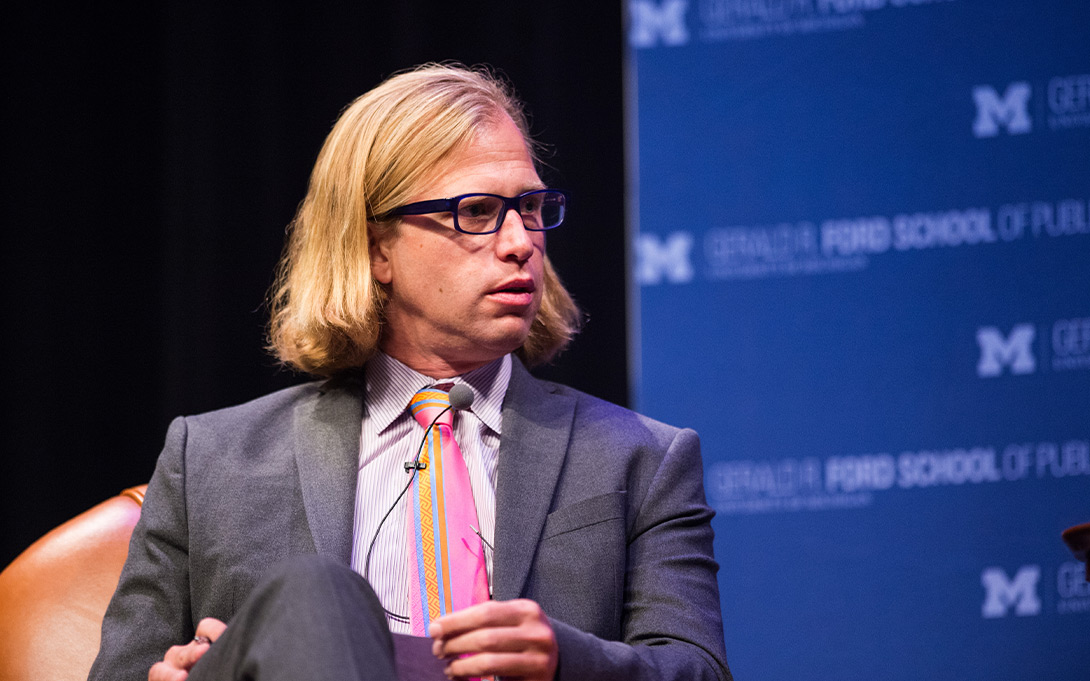
As inflation rates continue to rise and the Federal Reserve attempts to orchestrate a soft landing, many Americans are left wondering when prices will stop increasing. Ford School Professor Justin Wolfers talked to multiple national media outlets about the current state of the economy and what policymakers can do to curb its impact. Here is a compilation of his appearances:
A weird day for Trump, borrowed money and you, CNN, September 21, 2022
There is an optimistic way to view the Fed’s news, according to the University of Michigan professor Justin Wolfers. Rates are still historically low compared with the anti-inflationary rate hikes of the 1980s.
“If I called my parents and complained to them about 3.25% interest rates, they would remind me back when they were paying 15% or more,” Wolfers told CNN’s Ana Cabrera on Wednesday. “So rates aren’t as low as they once were, but this is not a new world at all.”
He also said not to expect goods affected by inflation to get cheaper.
“If some of them stop rising, that’s going to be enough to pull inflation back,” he said, arguing that post-pandemic supply chain issues still have not been resolved. It might be less painful to buy a car next year, he argued. But his optimism doesn’t extend to food prices.
“It will still be painful at the grocery store for a while, though,” Wolfers said.
Ugly Politics Conjure Up Trade-Off Between Poverty Reduction and Inflation, Washington Post, September 22, 2022
Justin Wolfers at the University of Michigan argues that automatic stabilizers — assistance that turns on when the economy goes sour and turns off as it improves — could help make better sense of American redistribution. It would be a clear improvement over the current practice of pushing help through reconciliation because nothing could get through otherwise.
